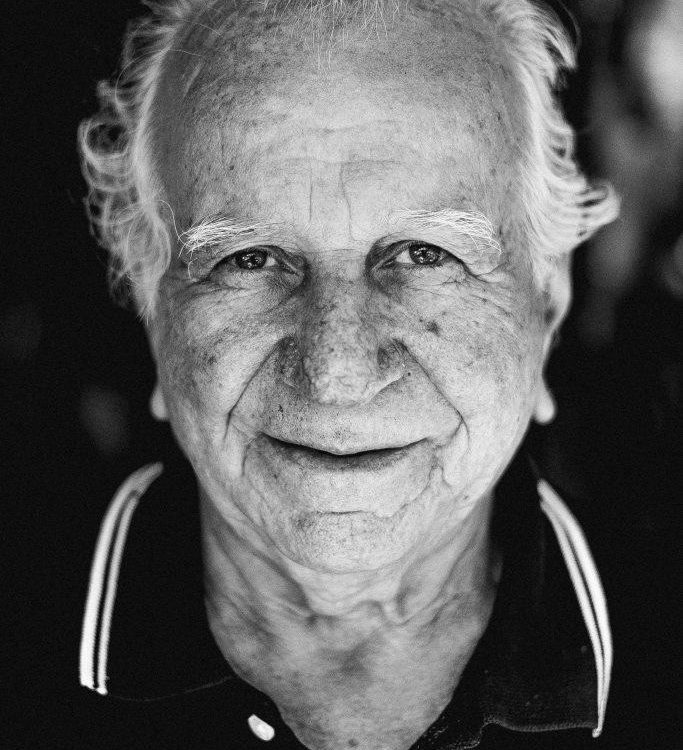Looking for Assisted Living Memory Care? Remember These 5 Essentials

How to Find the Best Home Health Care Provider
April 3, 2022
In-Home Care vs. Nursing Home: How to Choose
June 2, 2022Looking for Assisted Living Memory Care? Remember These 5 Essentials
Many seniors choose to register with an assisted living memory care facility as their final destination. With the right choice, these residents can continue to live comfortably while receiving assistance with their daily needs. This article will consider five essentials to help you look for assisted living memory care.
Assisted Living Memory care?
Assisted living memory care caters to vulnerable people in need of assistance with their activities of daily living (ADLs) like bathing, cooking, moving around, taking medications, etc. Most candidates for this type of care are the elderly and senior citizens.
A typical assisted living facility is built as a residential house or shelter with living spaces partitioned into apartments, rooms, kitchens, quarters, etc. This gives residents that home-like feeling and a certain degree of autonomy over their environment and well-being. It also provides older adults the opportunity to socialize with each other, which can benefit their mental health.
Assisted living memory care should be on the cards if you or a family member needs access to 24/7 care that can’t be provided at home. Some services to expect include
- Daily meals
- Medication management
- Help with personal care
- Social activities
- Steady emergence care
- Other medical services
Assisted Living and Memory Care. What’s the Difference?
Assisted living and memory care both share certain similarities. At the core of each system is a desire to provide care and support to older adults in their homes and the facility.
On the one hand, Assisted living is a type of care that helps seniors with basic needs such as eating, bathing, and dressing. In assisted living, the staff often acts as caregivers for residents who may have difficulty performing their daily tasks. It is important to note that assisted living also caters to older people with cognitive issues.
On the other hand, memory care provides facilities for older people with memory-related issues and other cognitive impairments.
A higher level of skill goes into the details of these facilities to reduce confusion that may arise from construction. This includes installing precautions like door alarms and painting walls with cool colors. (nothing aggressive like red, yellow etc.)
The easiest way to differentiate between assisted living and memory care is to know what type of people resides within the facilities. If most people are mentally stable but still need physical helps with (ADLs), this would be assisted living. Conversely, if most residents have Alzheimer’s or dementia, they would be in memory care communities.
Note that a care facility may incorporate assisted living and mental care into their care system.
Caring While Improving Memory
Caregivers of people with Alzheimer’s disease or another form of dementia knows all too well the toll it takes on them. Managing Alzheimer’s and dementia can be demanding and even detrimental to your mental health as an incurable illness. A recent study shows that caregivers may be at risk of having dementia.
A good assisted living memory care provides residents with an adequate facility that helps them manage underlying memory illnesses. Efforts are made to improve the cognitive ability of residents by ensuring they participate in mentally stimulating activities like board games, physical exercise, learning new dance steps, and music therapy.
Another factor that helps improve memory is the personalized, caring system adopted. Each resident is studied to understand their needs and assigned a personalized care plan that caters to their unique needs and interests.
Alzheimer’s Disease vs. Dementia
Alzheimer’s and dementia refer to a decrease in brain function, usually due to aging. In most cases, they are manifested by a significant loss of memory. However, Alzheimer’s doesn’t mean dementia and vice versa. Alzheimer’s disease is instead a form of dementia.
The forms of dementia are distinguished by their mechanisms of damage to the brain. They include Alzheimer’s disease, mixed dementia, Lewy body dementia and Frontotemporal dementia.
Finding the Right Home for Your Elderly Loved One
There are a variety of assisted living memory care facilities available, each with its own set of benefits and drawbacks. Some people opt for assisted living memory care or nursing home. Others may consider in-house care. In the end, finding the best solution depends on each individual’s needs and preferences.
You can start by asking your family and friends for recommendations. They may have a friend or relative who has recently moved into an assisted living memory care facility. If you have a home in mind, check the websites and call the facility to learn more about their services.
5 Essentials in Assisted Living Memory Care
Several elderly home care systems share similarities with assisted living memory care. This may be due to some similarities in the duties carried out or the mode of caring. Notwithstanding these similarities, if you experience the need to distinguish between these different care systems, here are five essentials to consider;
1. 24-hour Supervision and Care
This is a prerequisite to registering for assisted living memory care. Residents are put under 24/7 supervision and care to help them with (ADLs) and prevent the risk of accidents. These constant supervisions would prompt a quick response in case of an accident.
2. On-Site Nurses
Having on-site nurses in assisted living memory care serves as a guarantee in cases of emergence. These nurses are ready to handle medical emergencies and prevent further complications if the need arises.
3. Trained Caregivers
Caregivers in assisted living medical care are well trained in the art of elderly care. They usually work with a high level of professionalism and know what signs to look for when caring for each resident.
4. Activities and Therapy for Memory Loss Prevention
Most assisted living memory care communities have various activities to engage residents in mind-stimulating activities. Painting, dancing, and watching movies help eliminate boredom, improve cognitive ability and prevent memory loss.
5. Memory Improvement and Stimulation
Assisted living memory care is structured to improve and stimulate memories. From the activities to the cool colors painted on walls, the goal of these facilities is to create a mentally stimulating environment capable of improving residents’ cognitive abilities.
Alternatives to Assisted Living Centers
Although assisted living is a great choice for caring for older people, it isn’t suitable for all seniors. Some elderly people who suffer from severe medical conditions or need 24/7 supervision may opt for other assisted living alternatives that would adequately cater to their needs. Some of these alternatives include;
Nursing Homes
Nursing homes provide 24hrs medical attention to people who need it. Medical staffs operate these homes and ensure ADLs help, therapy, and other necessary treatments are given to residents. Compared to assisted living medical care, most people admitted to a nursing home require higher care and supervision.
Senior Living Communities
Senior living communities are designed to meet the need of older people. These communities provide quality health care and other amenities for senior residents. Age- Restrictions are usually in place to ensure people living in these communities are above a specified age.
In Home Senior Care
In home senior care is one of the cheapest options for senior assistance and care. As the name suggests, this type of care is given within the Senior’s home. A specialized caregiver is hired to help with ADLs, medical reminders, companionship, transportation and other tasks.
Finding the Right Solution for Loved Ones with Memory Loss
Many people have experienced a loved one suffering from memory loss at some point. Whether the person has Alzheimer’s disease or another form of dementia, losing memories can be a difficult and frustrating experience.
Some people opt for assisted living memory care or nursing home. Others may consider in house care. In the end, finding the best solution depends on the need and preferences of a loved one.
It is important to carry out your research before making a decision. There are many resources online to help with your research. Alzheimer’s Association is a great place to start.
—————————————-
About the authors:
Mike Cutler writes on senior lifestyles elderly care, and homecare. Enjoying living in a multi-generational household, along with senior care are some of his passions. He lives with his family in Reno NV and enjoys going to the Sierra Nevada mountains for hiking and family activities.
Abolarin John writes on topics related to senior care, especially within the field of medicine.
———————————————-
CITATIONS




